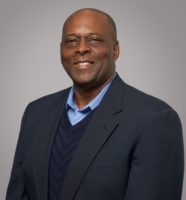
The Association of Community College Trustees (ACCT) is the national organization that represents more than 6,500 elected and appointed community college trustees, including the majority of North Carolina’s institutions.
“ACCT is the voice of community colleges in Washington and throughout the country,” according to ACCT President and CEO J. Noah Brown. “Everything we do serves to promote the quality and value of community colleges, and to equip those who govern them to lead with vision, courage and a focus on integrity and student success.”
Your National Advocate
ACCT works on behalf of all community colleges to help inform legislators about the needs of community colleges, including, for example, advocating for year-round Pell Grants, second-chance Pell Grants, federal aid, and workforce-development programs. Each year, in partnership with the American Association of Community Colleges, ACCT establishes federal legislative priorities that represent our constituents’ interests.
In addition, ACCT’s advocacy team conducts original research to better understand and communicate trends in community colleges. Recent research has examined the college-work balance, improving outcomes for rural and urban males, and food and housing insecurity among community college students.
One of the association’s newest research initiatives is to better understand the needs of rural community colleges and their students. According to ACCT Senior Vice President Jee Hang Lee, “We’ve identified North Carolina as one of five states in which to pilot this needs assessment.” This is one of many ways by which ACCT works with member colleges in North Carolina, and through which we can bring a diverse national perspective to bear on local challenges.
ACCT collaborates with NCACCT and the other statewide community college associations to facilitate communication, support and advocacy between the state and national levels. “By partnering,” Brown says, “NCACCT and ACCT are able to amplify one another’s efforts within the state, in the nation’s capital and throughout the country.”
Resources
In addition to the advocacy tools, ACCT offers many other resources including its magazine, Trustee Quarterly, In the Know with ACCT podcast, and Trustee Talk newsletter. ACCT also offers educational publications, such as the touchstone book Trusteeship in Community Colleges: A Guide to Effective Governance.
Services & Educational Opportunities
Through its educational programs ACCT offers customized board retreats that aim to strengthen communication and understanding among board members, which can lead to a stronger, more effective working group. Boards that engage in training and professional development serve as a model for the rest of the institution. ACCT CEO evaluation and board self-assessment services are designed to give encouragement and constructive and impartial advice to boards and CEOs to best serve their institutions, grow professionally and communicate effectively.
Events
ACCT hosts two national conferences each year, and two governance institutes. Trustees, students and presidents from around the country come to Washington, DC, each February for the Community College National Legislative Summit. Participants learn about federal policy issues that impact postsecondary institutions and students, and have the opportunity to meet with their Congressional representatives and to advocate for community colleges.
The ACCT Leadership Congress is held each fall in different locations throughout the country. This annual event draws nearly 2,000 community college trustees, CEOs, thought leaders and others to learn about the latest initiatives community colleges are employing to improve student success, govern effectively, and address the latest trends, challenges and opportunities.
The ACCT Governance Leadership Institutes are offered twice a year, providing governance training to new and experienced community college trustees.
Here to Serve Your Needs
NCACCT is the go-to association for all North Carolina community colleges’ state-based needs. ACCT is excited to serve as a complementary partner—one that advocates for and supports the state’s colleges and their students from a nationwide perspective. More information about the resources discussed above can be found at www.acct.org, or you can connect with any ACCT staff person to learn more about our services and programs.
Click here to learn more about NCACCT Business Partners

